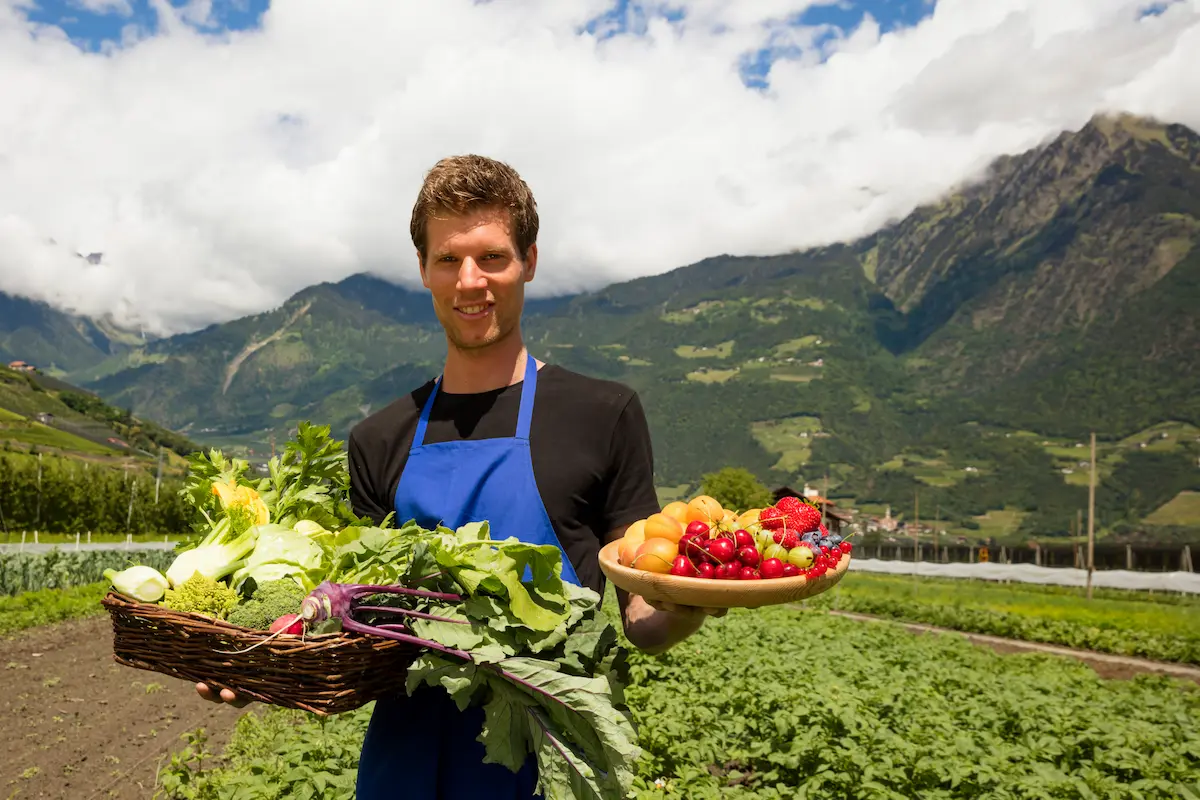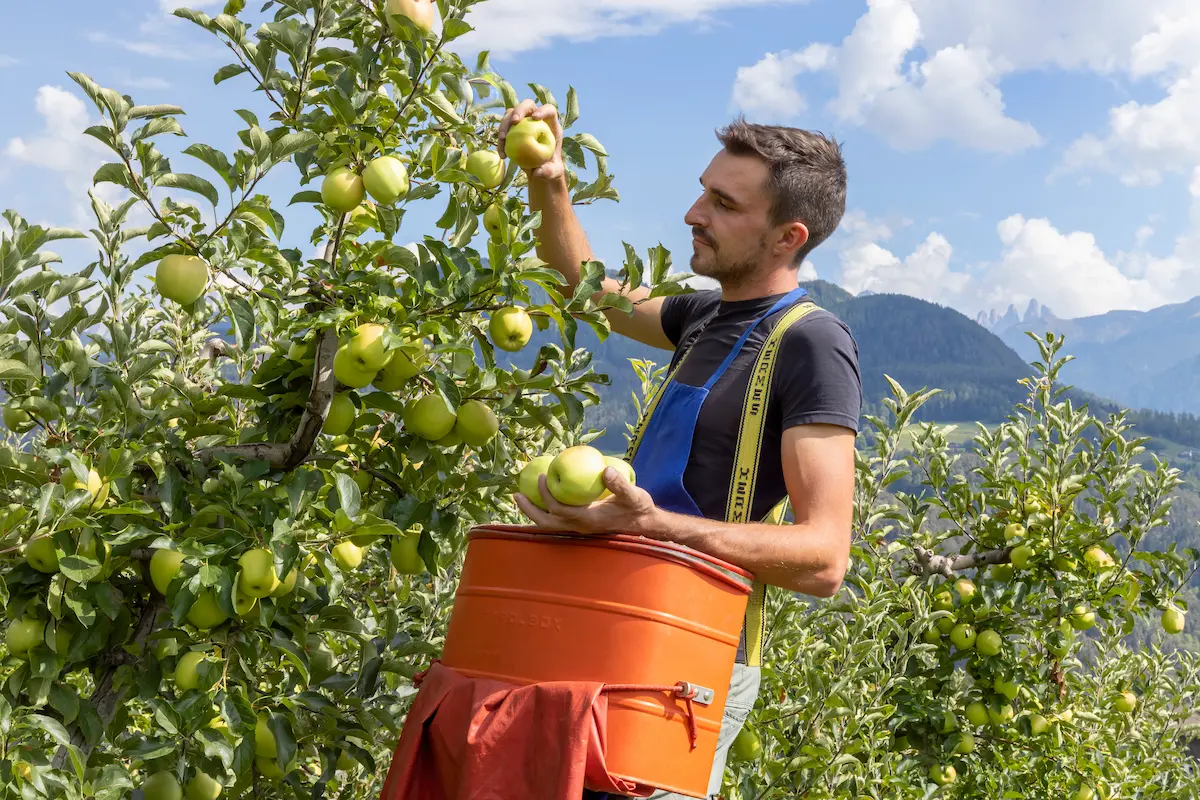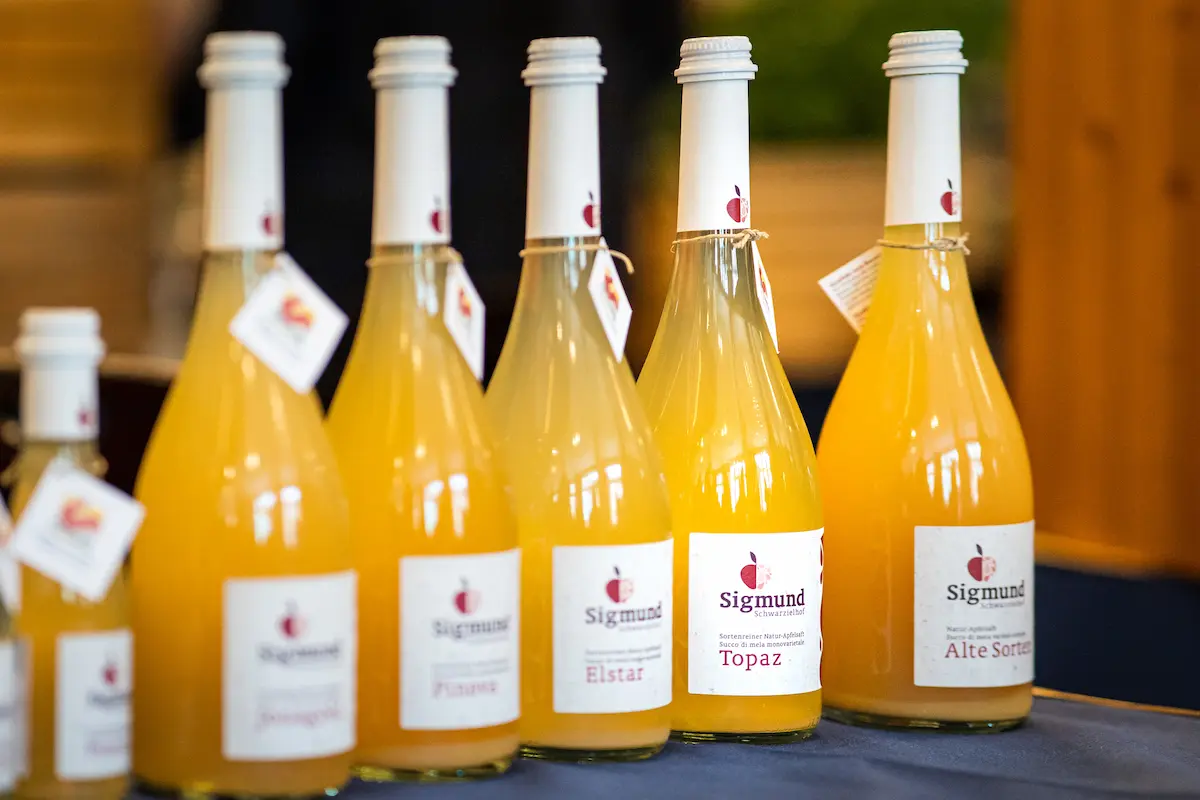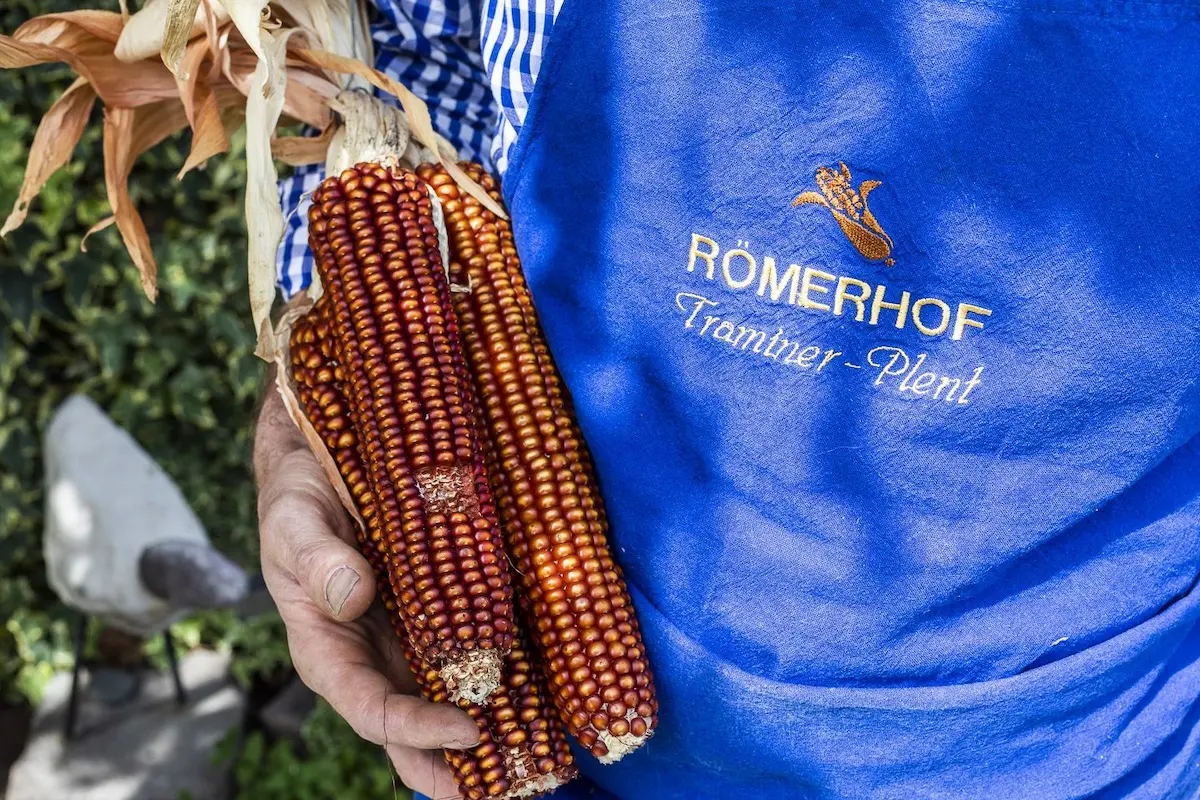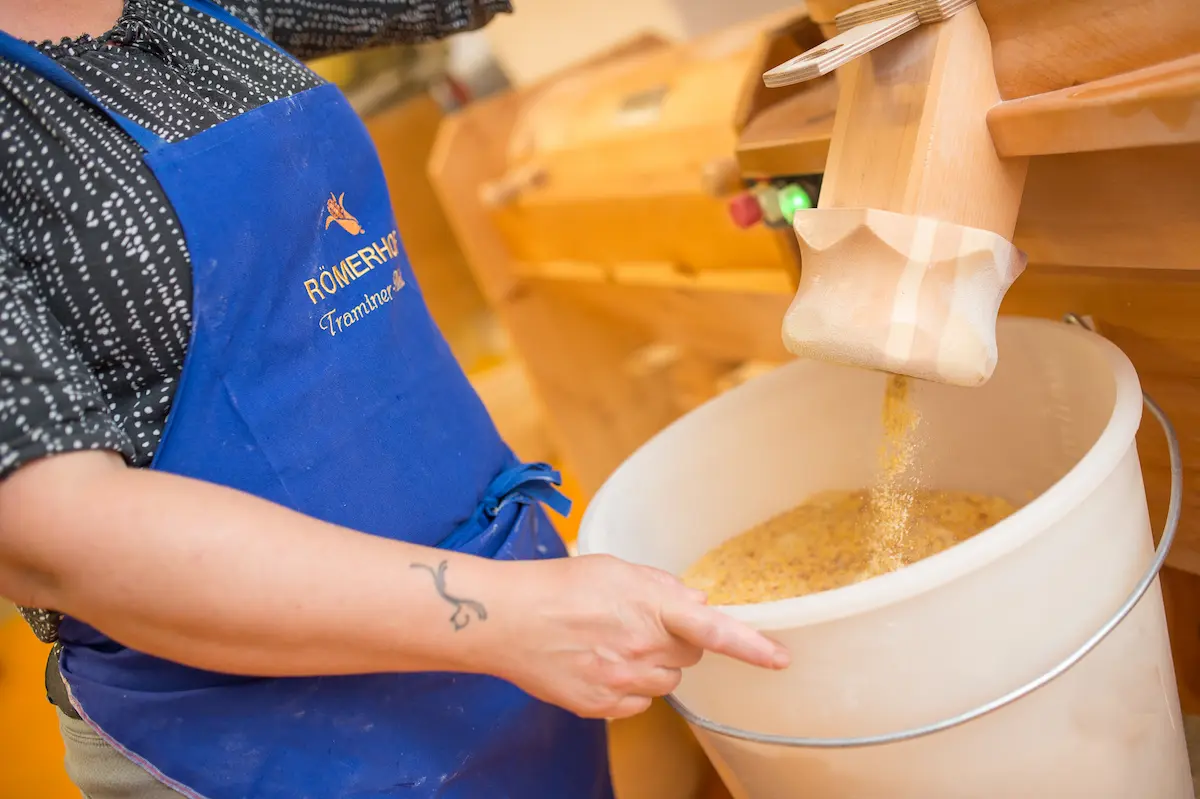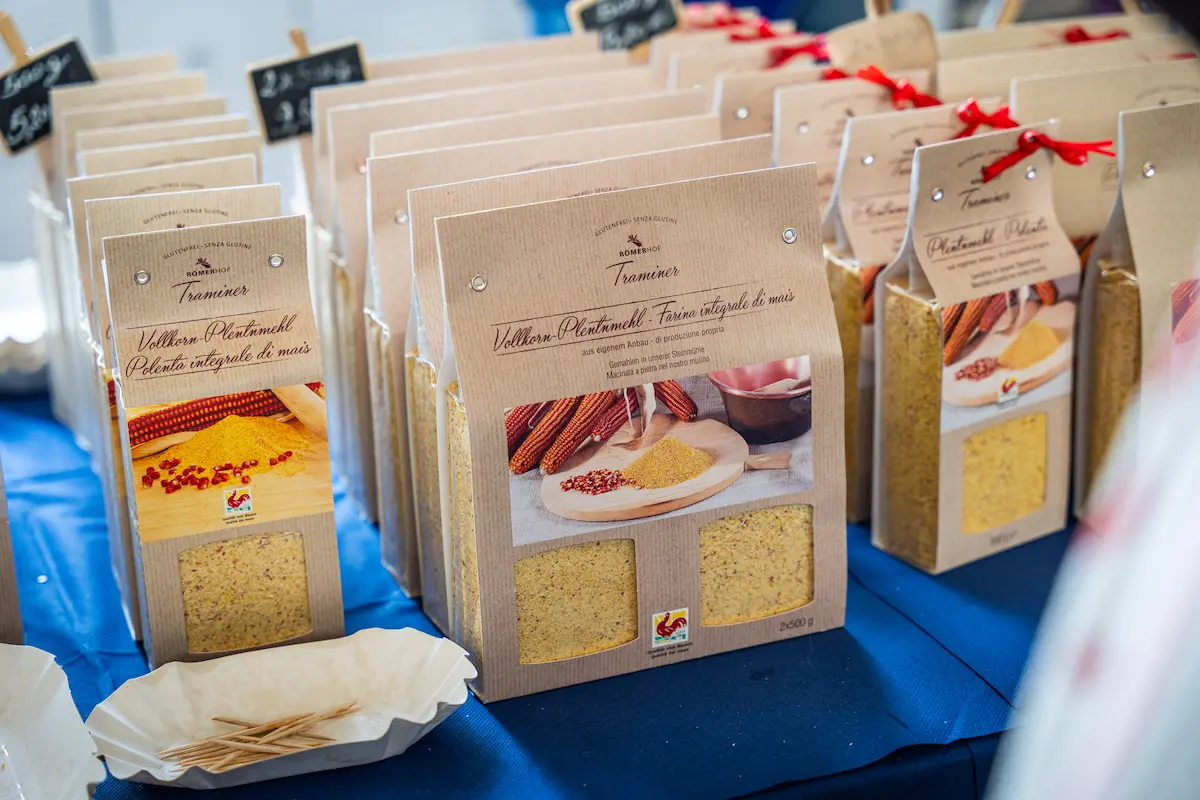The South Tyrolean Farmers' Association unites 1,700 family-run farms from all parts of the province under the “Red Rooster” quality seal. With the product lines ‘Farm Holidays’, ‘Quality Products from Farmers’ with 800 delicacies from 86 producers, ‘Rural Gourmet’, ‘Rural Crafts’ and the cookery school with 50 events as the latest pillar of the brand, the South Tyroleans are responding to the current travel trend in an impressive way. The focus is increasingly on experiencing nature, authentic rural life and genuine, artisan specialities as well as contact with the local population.
‘Species extinction’ also for cultivated plants
More and more animals and plants in the wild are disappearing from our planet forever or are acutely threatened with extinction - a well-known finding. At the same time, however, there is also - almost unnoticed - a further loss of biodiversity, namely in gardens and fields. Here too, the diversity of cereals, fruit and vegetable varieties continues to decline. Only a few high-performance crops now dominate and are increasingly displacing their original predecessors, which are excellently adapted to the respective regional conditions but are less productive. Among these, those with important genetic and special flavour characteristics are in danger of being forgotten. And with them, certain preparation methods and recipes, and therefore valuable cultural assets of the respective regions.
Back to the roots: Almost forgotten treasures rediscovered
Increasing drought, storms or late frosts weaken orchards and vegetable fields in our latitudes. As a result, new pests and diseases are spreading. This increases the need for care and the use of sprays. By contrast, most farmers with the South Tyrolean ‘Roter Hahn’ seal of quality meet these challenges by drawing on the knowledge they have passed on from generation to generation. These farmers are also focussing on reviving old, sometimes forgotten varieties of fruit, vegetables and cereals.
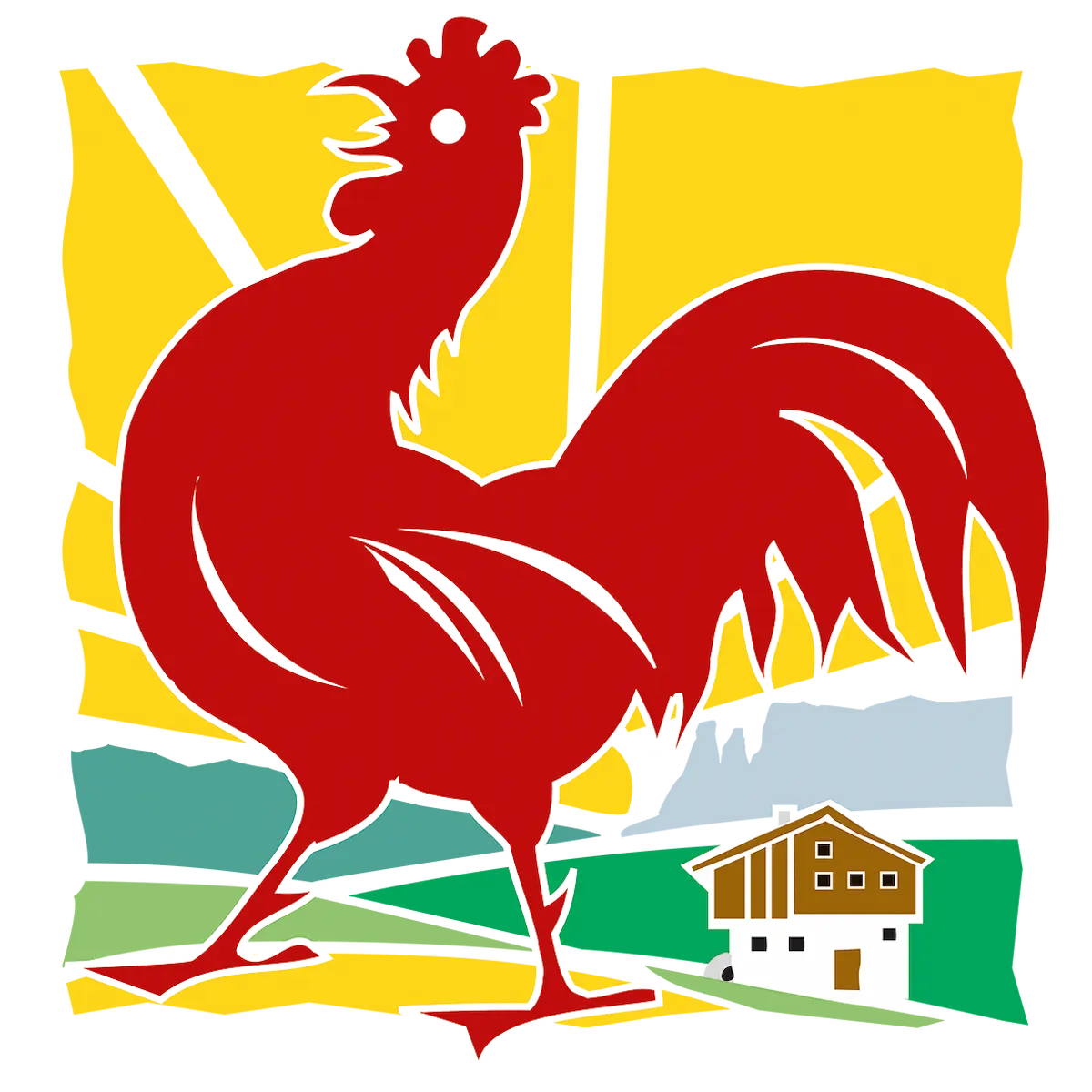
Adapted for centuries to the local environment, to their specific ‘terroir’, these not only strengthen biodiversity, but also improve the variety of flavours and nutritional quality of the products. Through the targeted protection of bees and their habitats, ‘Roter Hahn’ also contributes to the promotion of biodiversity and thus to the preservation of the ecological balance.
Schwarzielhof: naturally cloudy apple juice from old varieties
Fruit trees that are tended and harvested by hand have become rare. This is not the case on South Tyrol's ‘Roter Hahn’ farms, where farmers work in harmony with nature by observing seasonal cycles and natural rhythms and largely avoiding the use of machinery. Usually more versatile in flavour and even more digestible, historical apple varieties are also suitable for allergy sufferers. Some old varieties such as Gravensteiner, Striped Winter Calvill, Winesap, Ananasrenette and Kalterer Böhmer are now enjoying a new lease of life in the apple country of South Tyrol.
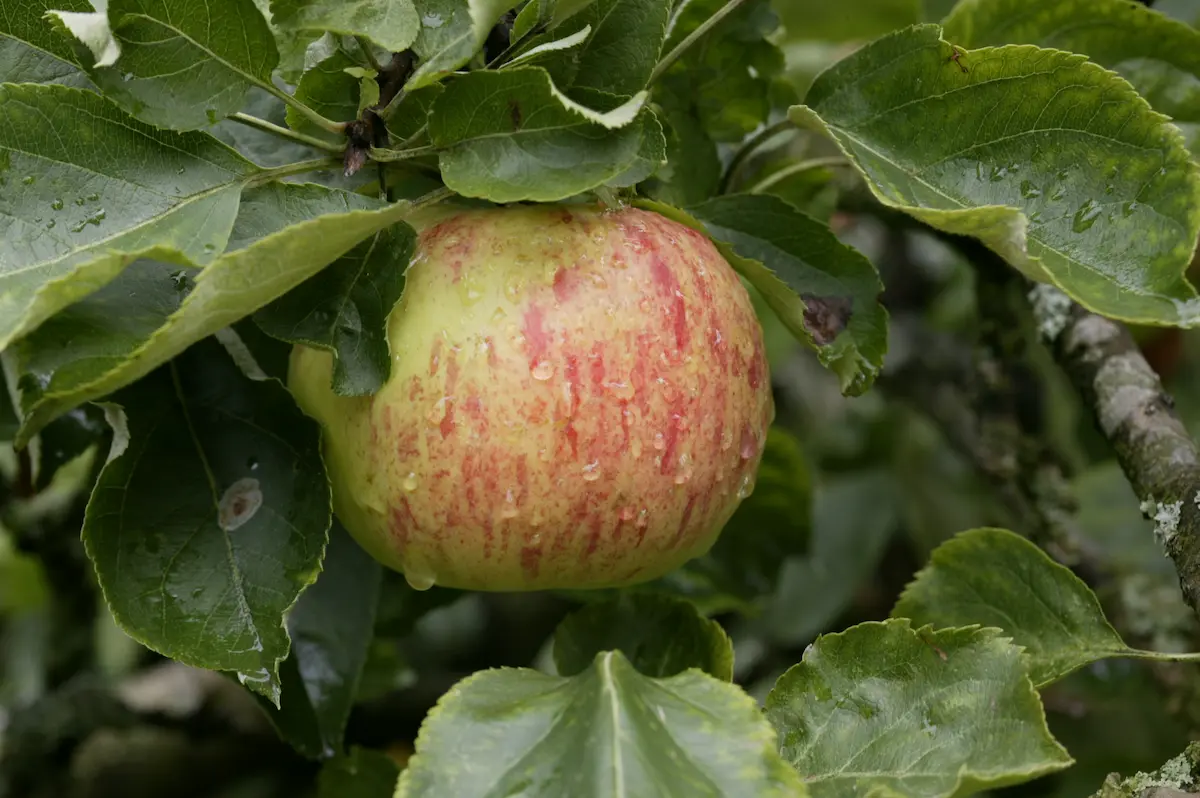
At the Schwarzielhof farm in Feldthurns/Eisacktal, holidaymakers can enjoy carefully processed, 100 per cent natural apple juice. The fruit ripens under large temperature fluctuations between day and night, allowing it to develop particularly intense flavours.
The naturally cloudy apple juice contains many valuable ingredients, antioxidants, purely natural fructose, vitamins and minerals. It is free from additives and preservatives and is elaborately produced by hand. The apples ripen completely on the tree so that their full flavour can develop.
The range includes juices from the well-known varieties Elstar, Pinova, Golden Delicious and Jonagold, but also a cuvee from the old South Tyrolean apple varieties Spitzlederer, white Rosmarin and Kleiner Steinpepping, which are grown again at Schwarzielhof. This juice is characterised by its strong straw-yellow colour, fruity, spicy aroma and full-bodied, harmonious sweet and sour taste.
Valentinhof: Sugar loaf, puntarella and co.
If you want to taste fruit and vegetables straight from the field, the farm shop at Valentinhof is the place to go. The young organic farmer Lukas Unterhofer grows the dandelion-like lettuce Cicoria catalogna as well as sugar loaf, beetroot, chard and much more. The sunny location in Merano provides excellent growing conditions.
Sugar loaf, also known as autumn chicory, which used to be found in almost every farmer's garden, is, like radicchio, a variety of chicory. Its name is not derived from its flavour, which is nutty and slightly bitter, but refers to its conical shape.
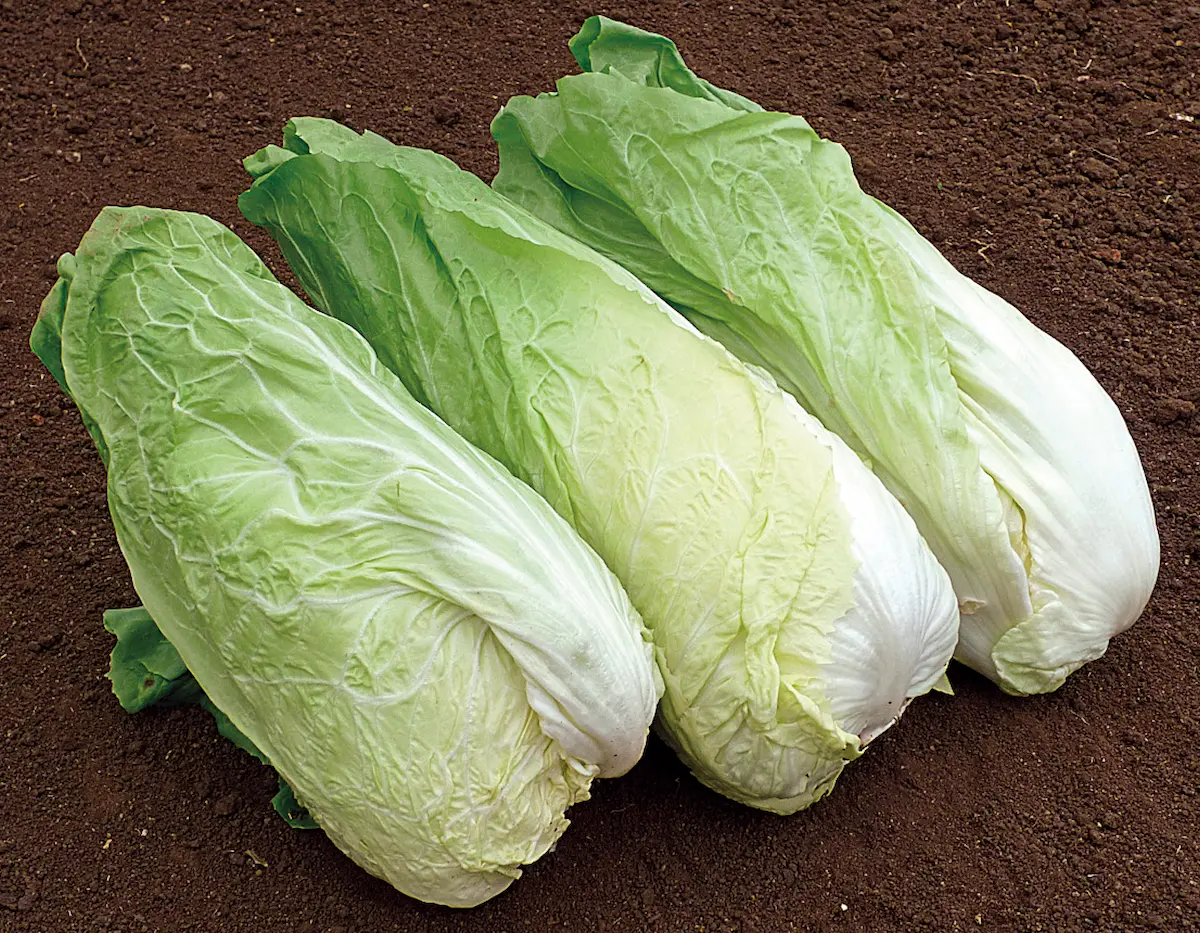
The outer green leaves are usually very bitter, which is why the inner, light-coloured part is mainly used for salads, for example together with apples, carrots and walnuts. However, the leaves can also be steamed, fried or baked. The large, elongated leaves are also ideal for stuffing. Sausages wrapped in sugar loaf leaves can be baked in puff pastry. This almost forgotten variety is also delicious when gratinated. The bitter substances it contains are very healthy and the sugar loaf is also low in nitrates as it grows outdoors in summer with plenty of light.
Another relative of chicory is the lettuce variety Puntarella, known in Italy under other names such as cicoria asparago, cicoria catalogna or catalogna for short. In German-speaking countries, it is also known as Vulkanspargel or Blattzichorie due to the asparagus-like shoots of the flower buds. Puntarella can be found on many menus, especially in the Lazio region. The hearts are often eaten raw as a salad, marinated with a dressing of olive oil, lemon juice, vinegar, crushed garlic, capers, salt and pepper. Lightly fried and seasoned on a starter buffet or as a side dish with pasta, risotto, filled savoury pancakes or colourful vegetable pans, cicoria catalogna is also a special treat.
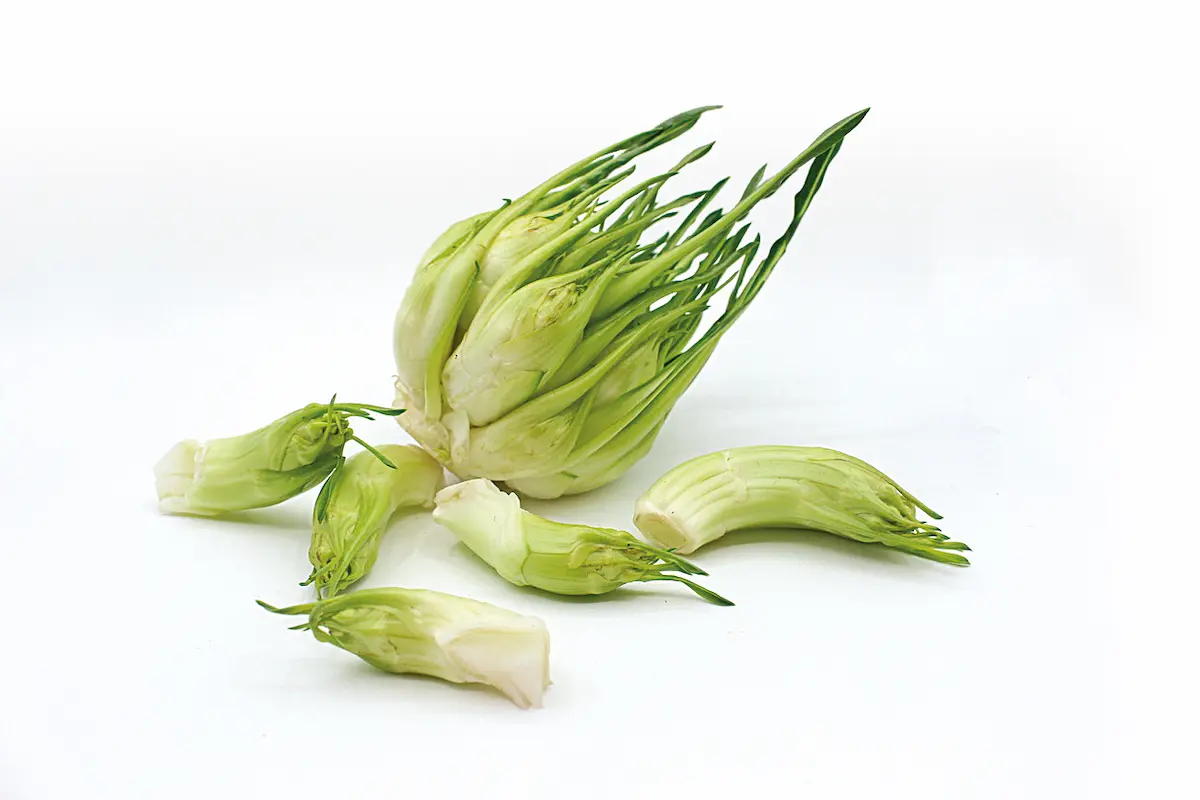
Puntarella is also very healthy due to its bitter substances, so that even Hildegard von Bingen appreciated its cleansing effect. The herb contains the bitter substance cichorin as well as lactucin, lactucoprikin and flavonoids. The flavour of puntarella is reminiscent of chicory or endive salad, but is less bitter and has a nutty note.
Special berry varieties at Fasslerhof
The Fasslerhof farm on the outskirts of Niederdorf is run by Alois Burger together with his son Martin. Berries and wild fruits grow around the farm and are processed into fruit spreads, syrups and fruit sweets. The high quality of the products is based on the use of sun-ripened fresh produce, which ends up in the jar - either pure or mixed - without any chemical additives. Thanks to the ideal climate and the high content of natural defence substances in the fruit, Fasslerhof is also able to completely dispense with the use of pesticides.
In addition to products made from well-known fruits such as raspberries, gooseberries, redcurrants, elderflower and elderberries, rhubarb, mint and rosehip, the range also includes unusual spreads made from mountain pine or dandelion flowers.
A particular focus is on the cultivation of wild fruits, which thrive particularly well in the Pustertal Valley climate. Sea buckthorn, chokeberry or chokeberry, blackthorn, barberry and wild quince are cultivated here. These wild fruits are increasingly appreciated by consumers, not least because they contain valuable ingredients.
More and more attention is being paid to the benefits of the chokeberry/aronia in particular, as its fruits are especially rich in vitamins A, C, E and K as well as the B complex and also contain minerals, fibre and secondary plant substances.
Sea buckthorn is widespread as a wild plant in Europe. In the middle of the last century, the particularly high vitamin C content of its fruit was discovered. However, the valuable oil found in the fruit flesh and seeds has also recently become very important for medical and cosmetic applications. In the production of sea buckthorn products, the Burger family attaches particular importance to ensuring that not only the vitamins but also the precious pulp oil are preserved through gentle processing.
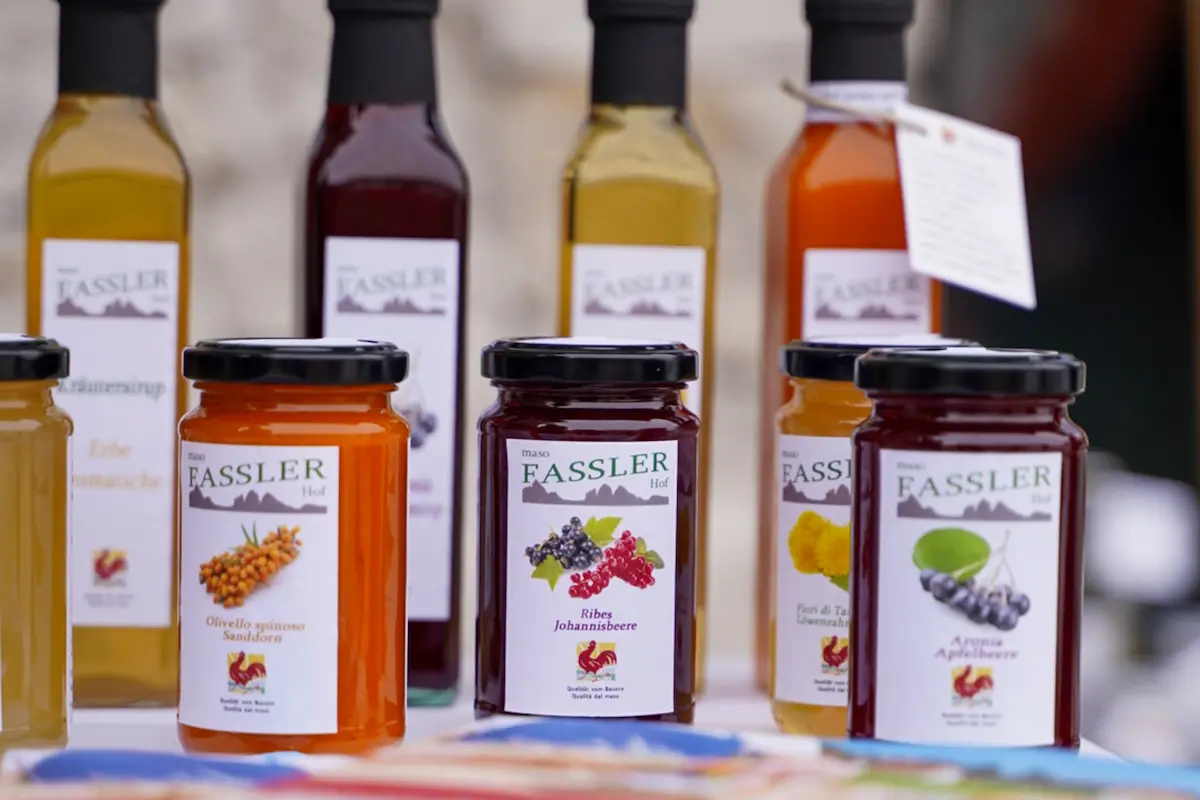
The wild quince, also known as the lemon quince, originally comes from East Asia and has mainly been planted as an ornamental shrub since its introduction to Europe. Later, the golden-yellow fruits were also found to have a high vitamin C content and it wasn't long before they were used to make tasty juices and jellies, especially in northern Europe.
The renaissance of old grain varieties
Ancient grains such as emmer, einkorn and spelt, some of which are thousands of years old, were hardly cultivated for a long time and were increasingly forgotten. The main reason for this, in addition to the progress made in breeding modern types of grain, is a special characteristic of ancient grains, namely their particularly firm husk, which makes an additional step in processing necessary. This husk must first be removed before the grain can be further processed into flour or flakes. On the other hand, it protects the plants from environmental influences and makes them resistant so that they can even thrive in nutrient-poor soils. The use of fertilisers and chemical pesticides is also reduced or even eliminated.
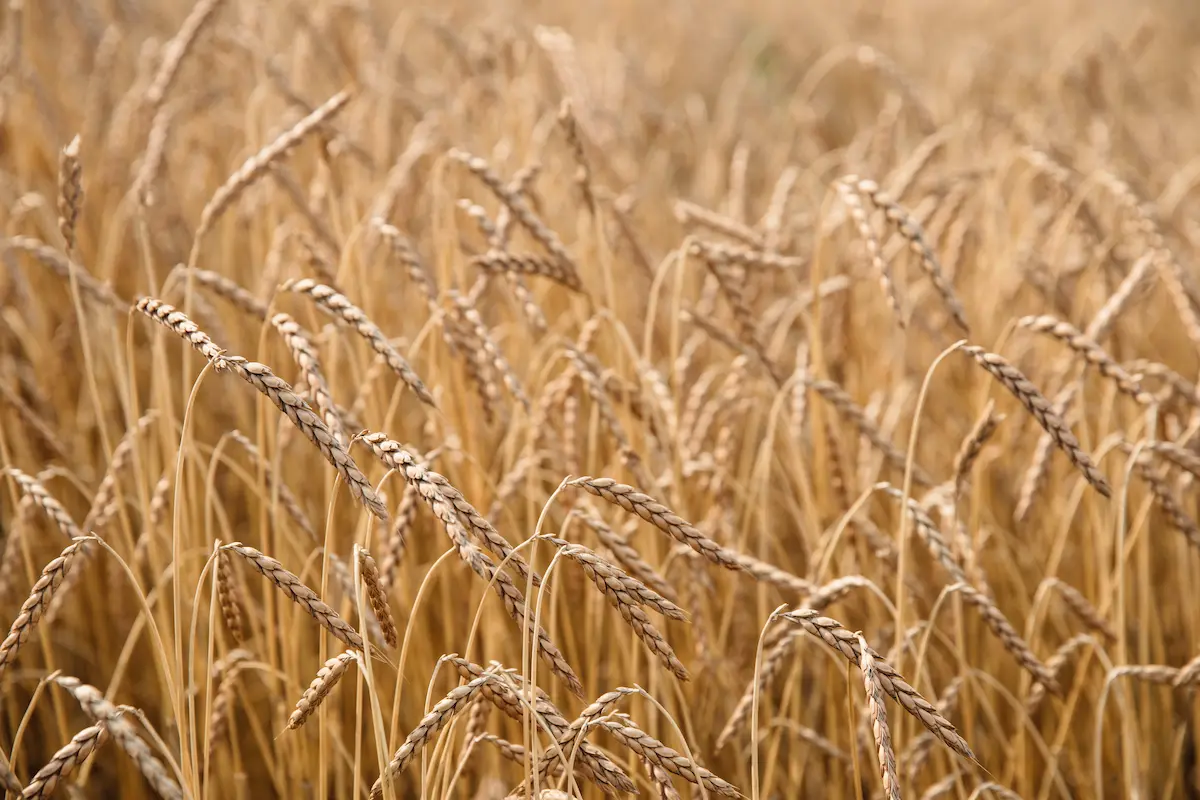
This makes the old varieties ideal for organic farming. The ancient grain has an intense flavour, is considered easier to digest, is higher in fibre and is therefore a healthy alternative to industrially produced baked goods.
Insider tip among connoisseurs: ‘Tirggplent’ from Römerhof
The Giovanett family from the Römerhof farm in Tramin an der Weinstraße still cultivates an old variety of maize that was known and widespread in the South Tyrolean lowlands as ‘Tirggplent’ until 50 years ago. After the harvest at the beginning of October, a lot of manual labour is required to carefully remove the leaves. The cobs are then placed in a coring machine. This is followed by mechanical drying. Approximately 700 kilograms of maize kernels can be dried in 20 hours per cycle.
After several traditional processes (‘oklaubn’, ‘tschilln’, ‘aufhängn’, ‘omochn’), the orange-red grains are finally ground in the farm's own stone mill into three different types of gluten-free maize flour (‘Plentnmehl’) and are considered a delicious insider tip among polenta connoisseurs.
Text: Peter Grett
Pictures:
Lead story: South Tyrolean Farmers' Association/Frieder Blickle
Red Rooster‘ logo: South Tyrolean Farmers’ Union and apple Winter calvill: Markus Zuber
Apple harvest: Südtiroler Bauernbund/Frieder Blickle
Apple juice: Schwarzielhof
Sugar loaf and puntarella: ReinSaat GmbHSanddorn, spreads, quince: FasslerhofSpelt: Benjamin Pfitscher
Tirggplent: cobs, milling, products: Römerhof
Service:
Red Rooster
Südtiroler Bauernbund
K.-M.-Gamper-Str. 5
I-39100 Bozen/South Tyrol
Tel.: +39 0471 999325
E-Mail: info@roterhahn.it
https://www.roterhahn.it/en
Schwarzielhof
Fam. Sigmund
Untrum 4
39040 Feldthurns
Tel.: +39 340 6116452
E-Mail: info@sigmund.bz.it
www.sigmund.bz.it
https://www.roterhahn.it/de/qualitaetsprodukte-vom-bauern/suedtirol/schwarzielhof-feldthurns+3813-3
Vallentinhof
Lukas Unterhofer
Schiessstandstrasse 143
39012 Meran
Tel.: +39 333 1748052
E-Mail: info@valentinhof.bio
https://www.valentinhof.bio/
Fasslerhof
Alois Burger
H. Wassermannstr. 30
39039 Niederdorf
South Tyrol (BZ) | Italy
Tel.: +39 3488814946
E-Mail: info@fasslerhof.com
https://www.fasslerhof.com/
https://www.roterhahn.it/de/qualitaetsprodukte-vom-bauern/suedtirol/fasslerhof-niederdorf+5524-3
Römerhof
Fam. Giovanett
Andreas-Hofer-Str. 48
39040 Tramin on the Wine Road,
Tel.: +39 339 5955989
E-Mail: christianom513@gmail.com
https://www.roterhahn.it/de/qualitaetsprodukte-vom-bauern/suedtirol/roemerhof-tramin-a-d-weinstrasse+5569-3
Polenta recipe:
https://www.roterhahn.it/en/farm-holidays/indulgence-on-the-farm/recipes-from-south-tyrol/recipe/polenta-with-cheese-and-speck
Source of seeds and young plants of old varieties in organic quality:
ReinSaat GmbH
A-3572 St. Leonhard am Hornerwald 69
Tel.: +43 (0) 2987 / 2347
E-Mail office@reinsaat.at
https://www.reinsaat.at

